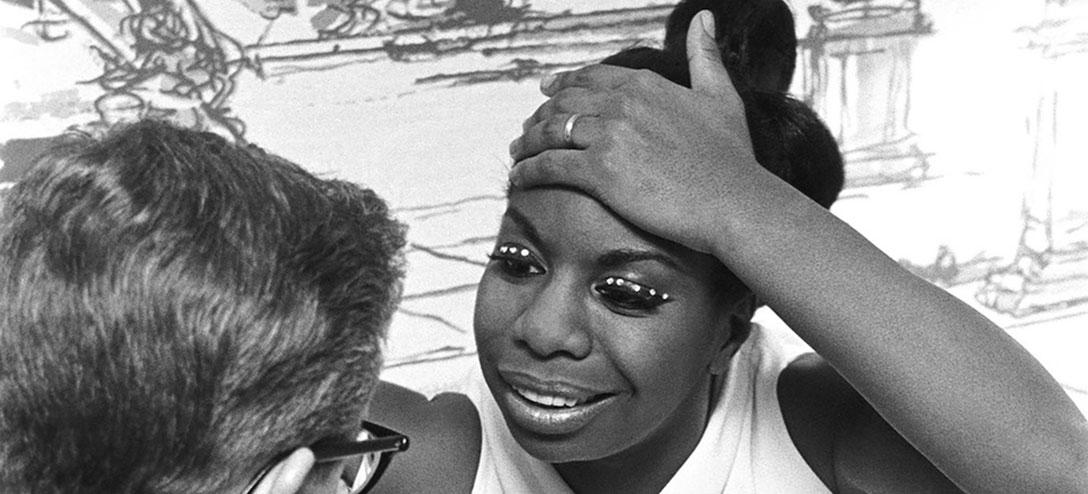Nate von Zumwalt
Passionate, mercurial, prodigiously talented. They’re adjectives that could characterize any number of entertainers, but maybe none more than the utterly compelling, endlessly perplexing Nina Simone. In January at the 2015 Sundance Film Festival, director Liz Garbus—a first-class artist in her own right—premiered her sweeping portrait of the complicated singer and pianist whose classically trained skills were paired with an undeniable fervor for activism.
What Happened, Miss Simone? chugs along to the pulsating tunes from the artist herself, guided by never-before-heard audio tapes that emblazon the film with Simone’s inimitable spirit. Garbus weaves in a veritable gold mine of archival footage documenting the musician’s formative years in the pastoral–and grossly prejudiced–south (Tryon, North Carolina, to be exact), where Simone was revered as a singular talent, but could never demand the same respect as a human. Miss Simone achieves the rare feat of playing like a collaboration between the late artist and the documentary filmmaker, while eschewing a cloying or sugarcoated tribute. That effect is partially owed to Nina Simone’s daughter Lisa, whose numerous appearances in the film transmit an aura redolent of her own mother. In many ways, it feels like the closest thing to a stamp of approval from Nina herself.
Nina Simone was nominated for 15 Grammys. Never won. Yet she was and is the High Priestess of Soul. #Grammys
— Liz Garbus (@lizgarbus) February 16, 2016
But what makes What Happened, Miss Simone? most revelatory is its occasionally painful candor. The film’s title is derived from a Maya Angelou quote that in full conveys the performer’s clashing, confounding worlds: “Miss Simone, you are idolized, even loved, by millions now. But what happened, Miss Simone?” Like many virtuosos, Simone’s life and career seemed ceaselessly disrupted by bouts of turmoil. From an ineffable agony only diagnosed later in her life as bipolar disorder, to a much more malicious pain inflicted by her own husband, Simone’s inability to find peace beyond the stage emerges as a resounding motif. Those disclosures only become bearable when they are offset with the beauty that she could impart to the world. And it seemed she always knew that would be her struggle–to find a place where the beauty and the pain could coexist. As she narrates in the film, “Sometimes I sound like gravel, and sometimes I sound like coffee and cream.”
And sometimes one cannot exist without the other.
What Happened, Miss Simone? is nominated for Best Documentary Feature at the 2016 Academy Awards and is currently available to stream on Netlix.








